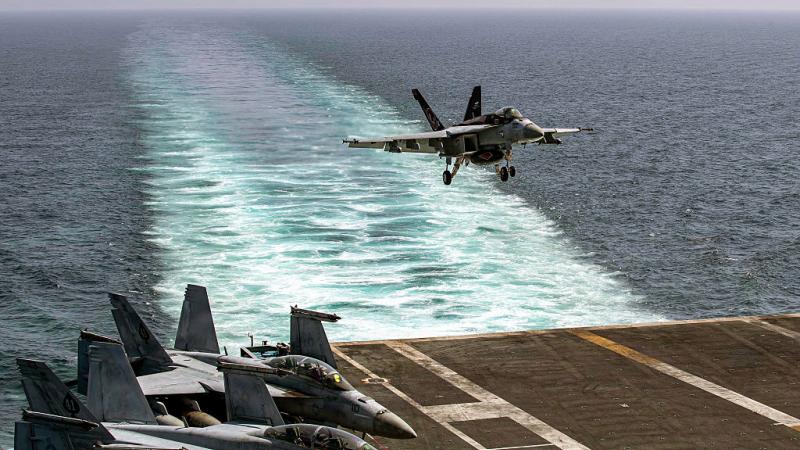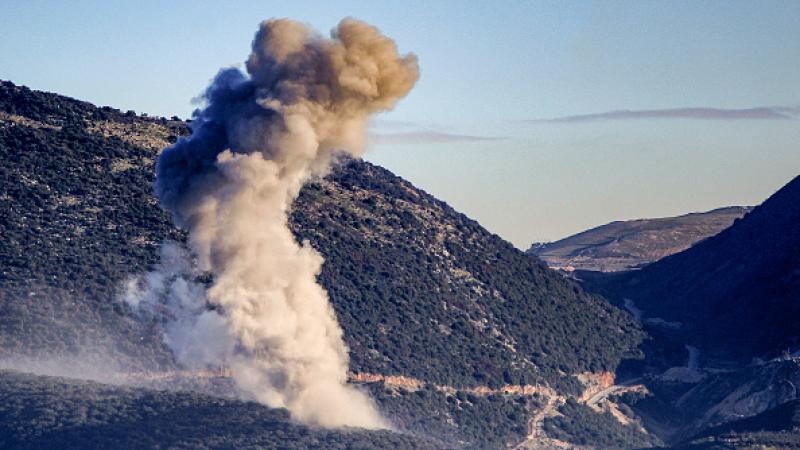Why Israel is alarmed over the Iran nuclear deal
The emerging pact will "likely create a more violent, more volatile Middle East," Israeli Prime Minister Naftali Bennett said last month.
The Biden administration is racing to restore the 2015 nuclear deal with Iran, but leaders in Israel are increasingly voicing concerns over the possibility of the United States reentering the Joint Comprehensive Plan of Action (JCPOA).
Parties involved in the talks have indicated a deal is close, and time is running out. A Biden official said in January that "only a handful of weeks" remain for the United States to reenter the deal before Iran will have enough nuclear material to create a weapon, which is what the deal is supposed to stop.
Israeli Prime Minister Naftali Bennett said last month that Israel is preparing for a "shorter and weaker" deal than the previous one, The Times of Israel reported. He warned that the deal would allow Iran to build "stadiums of advanced centrifuges without restrictions" within two and a half years due to the deal's sunset clause.
The emerging pact will "likely create a more violent, more volatile Middle East," Bennett said.
Former Prime Minister Benjamin Netanyahu last week slammed the deal as "terrible" and said it would "give Iran money for terrorism" against Israel.
In 2015, Former President Barack Obama lead the original JCPOA in partnership with China, France, Germany, Russia, the United Kingdom and the European Union, with the stated goal of preventing Iran from building a nuclear bomb. Iran entered the agreement, which gave the Islamic Republic relief from sanctions in exchange for what the Obama-Biden administration called "extraordinary and robust monitoring, verification, and inspection" of its nuclear program.
Then-Israeli Prime Minister Benjamin Netanyahu and others criticized the plan's temporary restrictions, which still left Iran a pathway to developing nuclear weapons. They also argued that the JCPOA did not address Iran's related non-nuclear activities, such as developing long-range missiles that could deliver bombs.
In 2018, then-President Donald Trump withdrew from what he called "the worst deal ever." He reimposed tough sanctions, which did not deter Iran from continuing to race ahead with its nuclear program.
Russia is serving as Iran's closest ally in the Vienna talks to revitalize the JCPOA. On Monday, the Russian Embassy in Iran tweeted that Russia's Foreign Affairs Minister Sergey Lavrov had been in talks with Iran's Foreign Affairs Minister Hossein Amir-Abdollahian.
"It was emphasized that the resuscitation of the #JCPOA should ensure that all its participants have equal rights regarding the unhindered development of cooperation in all areas," the embassy wrote.
White House press secretary Jen Psaki on Monday said, "We don't believe Russia wants Iran to have a nuclear weapon either."
Even if a deal is reached, the Biden administration would have difficulty implementing it.
Under a 2015 law in the United States, any new laws granting sanctions relief to Iran would require approval from Congress, the Associated Press reported. In order to avoid a battle with Congress, the Biden administration has simply said that it plans on reentering the old deal, key aspects of which expire in 2025.
Israeli leaders are doubtful that the deal will do much to stop Iran's development of a nuclear weapon. Since the deal unraveled, Iranian technology has raced ahead.
Additionally, they fear money used from sanctions relief could be funneled by Iran to proxies such as Hezbollah in Lebanon and Palestinian Hamas militants in the Gaza Strip.
Israel has said it has intercepted drones en route to Israel from Iran with military equipment in an effort to test whether supplies could be delivered to Gaza via drone. Israeli officials on Monday accused Iran of escalating terror in the region.
Psaki on Monday admitted that the Biden administration was discussing oil exports from Iran as well as trying to prevent the Islamic Republic from "acquiring a nuclear weapon."
She also insinuated that former President Trump wants Iran to have a nuclear weapon.
"I don't think anybody is advocating for Iran to continue acquiring a nuclear weapon, perhaps except for the former president who pulled us out of the deal," Psaki said.
Iranian media and officials have continued to voice public threats against Israel. For example, in January, Amir-Abdollahian accused Israel of insulting Iran and said "Zionism has no place in the future of the world," as translated by Google.
Iran is looking to return to the original nuclear agreement but is requesting access to $7 billion in frozen assets and unhindered oil sales.
The release of $7 billion in funds has been criticized by Gabriel Noronha, who served for two years in former Secretary of State Mike Pompeo's Iran Action Group.
"Biden's payment will only supercharge Iran's hostage-taking industry," Noronha wrote in Tablet Magazine.
"The Biden administration is not going back to the JCPOA," he argued. "It has negotiated an entirely different agreement. And I can assure you it is much, much worse than the original."
Yoel Guzansky, an expert on Iran at Israel's Institute for National Security Studies, told the AP that the agreement would buy time.
Israel must use the next few years to build its military capabilities to fight Iran if needed, he said.
"We need to flex our muscles and get this option ready to use," Guzansky told the AP.
He also said that Israel should partner with Gulf Arab states who also feel threatened by Iran, even if they are not as vocal about it.














